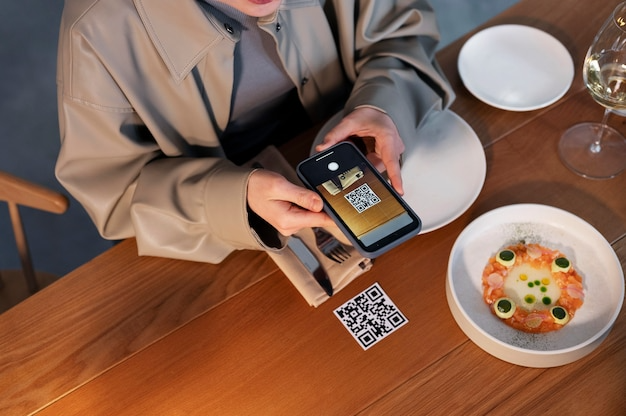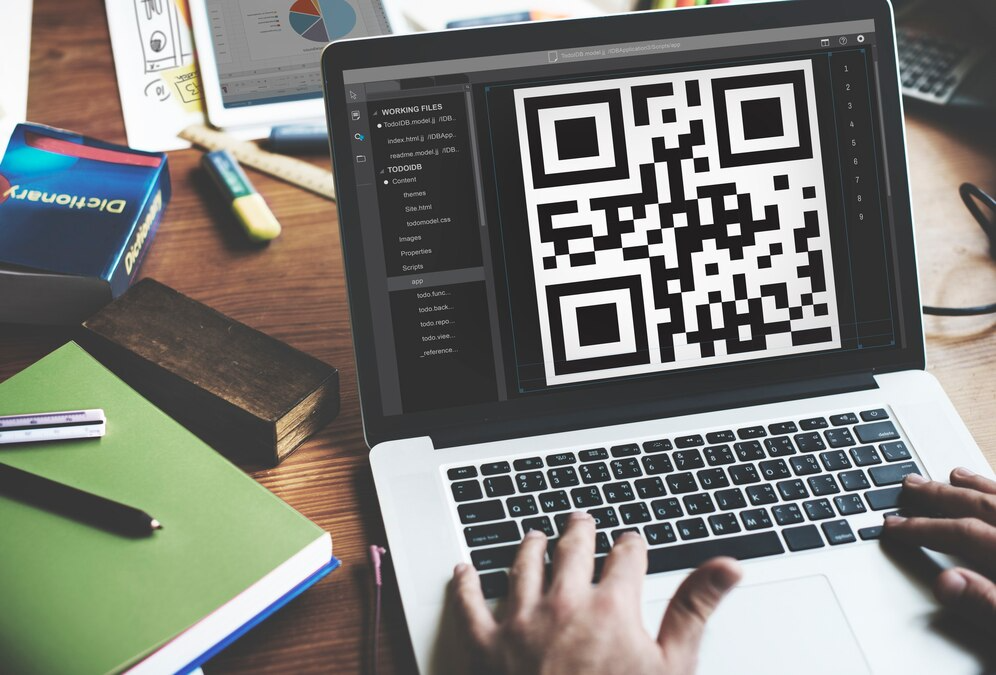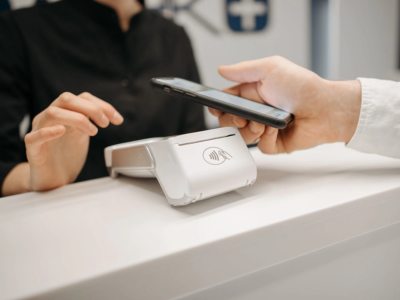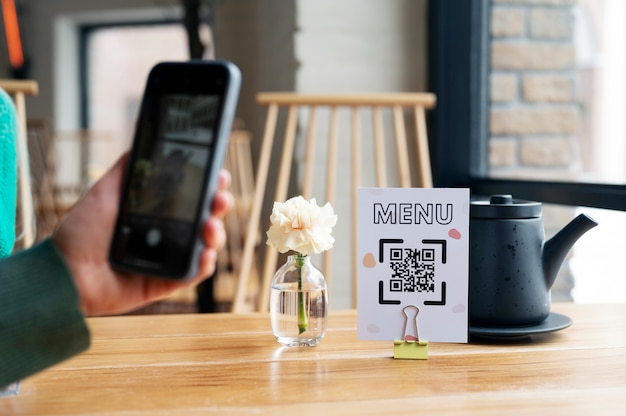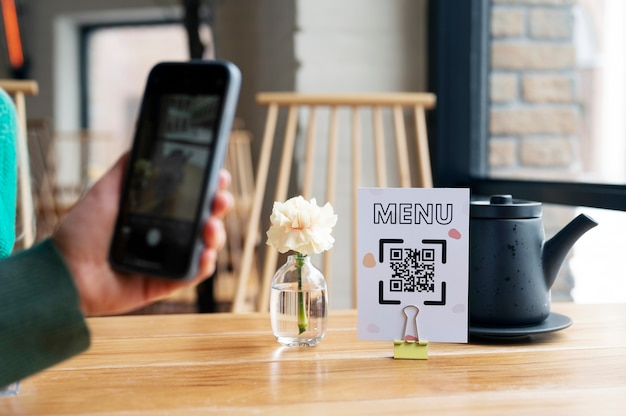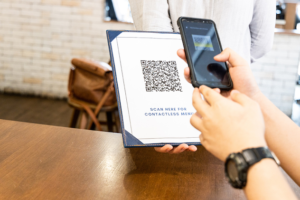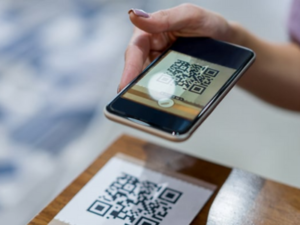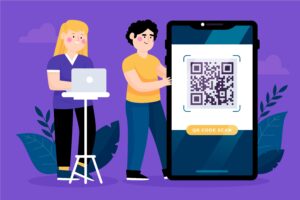In the realm of digital communication, efficiency and convenience are paramount. In recent years, Quick Response (QR) codes have emerged as a popular technology for sharing information in a fast and user-friendly manner. These two-dimensional barcodes can store various types of data, ranging from URLs and contact information to product details and payment instructions. With the widespread adoption of smartphones and the availability of QR code scanning apps, these codes have become a ubiquitous sight in marketing campaigns, event management, e-commerce, and more. Using QR Code APIs for Advanced Applications
To leverage the full potential of QR codes, developers and businesses can utilize QR Code APIs. These Application Programming Interfaces provide a set of functions and tools that enable the seamless integration of QR codes into various applications, systems, and processes. By harnessing the power of QR Code APIs, advanced applications can be developed, offering enhanced user experiences, improved security measures, and streamlined workflows. In this article, we will explore the myriad possibilities of using QR Code APIs for advanced applications across different industries.
Simplifying Mobile Experiences with QR Code APIs
Leveraging QR Code APIs for Mobile Applications
Mobile applications can greatly benefit from the integration of QR Code APIs. By incorporating QR codes, developers can simplify and enhance user experiences. For example, QR codes can be used for quick and secure user login, eliminating the need for cumbersome password entry. Moreover, QR codes can facilitate seamless authentication methods, such as two-factor authentication, providing an additional layer of security for users.
Enriching E-commerce Platforms with QR Codes
QR codes can revolutionize the e-commerce landscape by streamlining the purchasing process and providing customers with additional product information. By placing QR codes on product packaging or marketing materials, businesses can allow customers to scan the codes and access detailed product descriptions, customer reviews, and even make a purchase directly from their smartphones. QR Code APIs enable developers to generate and manage dynamic QR codes, ensuring that the information presented to customers is always up-to-date and relevant.
Transforming Marketing Campaigns with QR Code APIs
Boosting Brand Engagement with Dynamic QR Codes
Marketing campaigns can benefit greatly from the inclusion of QR codes, especially when utilizing QR Code APIs. Dynamic QR codes can be generated to offer personalized experiences for customers. Marketers can update the content linked to QR codes in real-time, providing targeted promotions, discounts, or product information to different customer segments. By analyzing QR code scan data, marketers can gain valuable insights into user behavior, track campaign effectiveness, and optimize marketing strategies accordingly.
Tracking and Analyzing QR Code Metrics
QR Code APIs enable businesses to track and analyze QR code metrics, offering valuable data on the performance of marketing campaigns and customer engagement. Metrics such as the number of scans, location of scans, and time of scans can provide deep insights into the effectiveness of QR code placements and the overall reach of marketing efforts. By understanding user behavior and preferences, businesses can refine their marketing strategies and achieve higher conversion rates.
Enhancing Security and Authentication
Secure Login and Authentication with QR Codes
QR codes can serve as secure authentication mechanisms, providing an alternative to traditional username and password logins. By integrating QR Code APIs, businesses can generate unique QR codes for each user, which can be scanned using a mobile app or a dedicated QR code reader. This authentication method offers a higher level of security, as the QR code can only be scanned by the authorized user’s device. Additionally, time-based QR codes can be used for temporary access, further bolstering security measures.
Two-Factor Authentication with QR Codes
Two-factor authentication (2FA) adds an extra layer of security by requiring users to provide two forms of identification. QR codes can play a crucial role in this process. For instance, when logging into an online account, users can scan a QR code displayed on the login page using a trusted authentication app. This QR code contains a unique cryptographic key that, when combined with the user’s password, provides a highly secure login method that is resistant to phishing attacks and password breaches.
Revolutionizing Payments with QR Codes
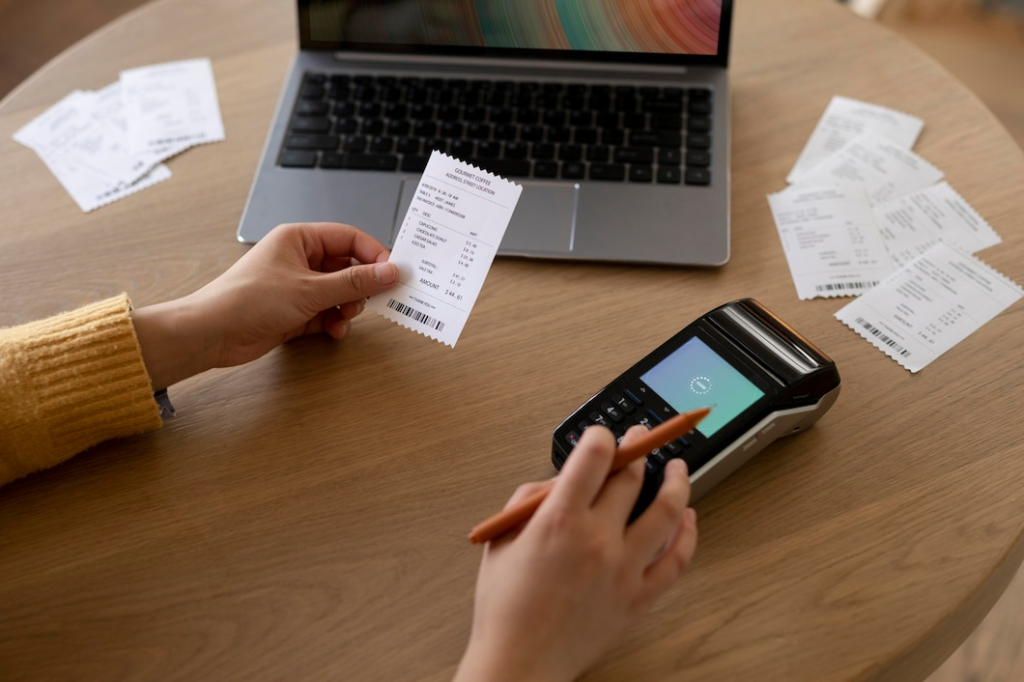
QR Code Payments in Retail
QR codes have transformed the payment landscape, offering a convenient and contactless method for transactions. By integrating QR Code APIs, businesses can generate unique QR codes linked to their payment systems. Customers can then scan these codes using their smartphones, initiating the payment process. This method eliminates the need for physical cards or cash, providing a seamless and efficient payment experience for both businesses and customers.
QR Code Invoicing and Billing
QR codes can simplify the invoicing and billing process for businesses. By incorporating QR Code APIs, companies can generate QR codes that contain invoice details, payment due dates, and other relevant information. When customers receive these QR codes, they can simply scan them to initiate the payment process. This streamlines the payment process, reduces errors, and enhances the overall efficiency of billing operations.
Integrating QR Codes into Healthcare Systems
QR Codes for Patient Identification
Enhance patient identification processes in healthcare settings. By incorporating QR Code APIs, healthcare providers can generate unique QR codes for each patient. These codes can be printed on wristbands or ID cards and scanned using mobile devices or dedicated scanners. This method improves accuracy, reduces the chances of misidentification, and enables quick access to patient records, medication details, and allergies.
QR Codes for Medication Management
Medication errors can have serious consequences in healthcare. QR codes can be used to streamline medication management processes and improve patient safety. By placing QR codes on medication packaging, healthcare professionals can scan the codes to access detailed information about the medication, including dosage instructions, contraindications, and potential side effects. This ensures accurate medication administration and reduces the risk of errors.
Exploring Emerging Trends and Innovations
QR Codes for Augmented Reality Experiences
Augmented Reality (AR) is an exciting technology that overlays digital content onto the real world. QR codes can serve as a gateway to AR experiences, allowing users to scan codes and unlock immersive content. For example, QR codes placed on product packaging can enable customers to scan and view 3D product models, interactive product demonstrations, or virtual try-on experiences. By combining QR codes and AR, businesses can create engaging and interactive experiences that captivate customers.
QR Codes for IoT Device Pairing
The Internet of Things (IoT) has revolutionized the way we interact with devices and appliances. QR codes can simplify the device pairing process in IoT applications. When setting up a new IoT device, users can scan a QR code on the device or its packaging to initiate the pairing process. This eliminates the need for manual configuration and ensures a seamless and hassle-free setup experience.
FAQs
What is a QR code API?
A QR code API is an application programming interface that allows developers to generate, decode, and manipulate QR codes programmatically. It provides a set of functions and methods to interact with QR codes, such as generating QR codes with specific data, reading and decoding QR codes from images, and extracting information from QR codes.
What are some advanced applications of QR code APIs?
QR code APIs can be used in various advanced applications, including:
- Mobile payment systems: QR codes can be generated and scanned to facilitate quick and secure mobile payments.
- Inventory management: QR codes can be used to track and manage inventory by encoding product information and updating it as items are scanned.
- Event ticketing: QR codes can be embedded in event tickets to authenticate and streamline the entry process.
- Authentication and security: QR codes can be utilized for two-factor authentication or as a secure way to access sensitive information or systems.
- Marketing campaigns: QR codes can be incorporated into marketing materials to provide additional information, promotions, or interactive experiences to users.
How do QR code APIs work?
QR code APIs typically provide a set of functions or endpoints that developers can access using HTTP requests or SDKs. These functions allow developers to create QR codes by specifying the desired data, size, error correction level, and other parameters. QR codes can be generated as images or in various formats such as SVG or PDF. The APIs also provide methods to read and decode QR codes from images or camera feeds.
What programming languages are supported by QR code APIs?
The programming languages supported by QR code APIs may vary depending on the API provider. However, most QR code APIs offer support for popular languages like Java, Python, JavaScript, Ruby, PHP, and .NET. Additionally, many APIs provide HTTP endpoints, which can be accessed from any programming language that supports HTTP requests.
Can QR code APIs handle bulk QR code generation?
Yes, many QR code APIs support bulk generation of QR codes. Developers can provide a list of data or content, and the API can generate multiple QR codes in a batch. This is useful for scenarios like generating unique QR codes for a large number of products or creating personalized QR codes for a mailing campaign.
Conclusion
QR codes, when combined with the power of QR Code APIs, unlock a world of possibilities for advanced applications. From simplifying mobile experiences and transforming marketing campaigns to enhancing security and revolutionizing payments, QR codes offer a versatile and efficient solution. By incorporating QR Code APIs, businesses can streamline processes, enhance user experiences, and unlock new opportunities for growth. As technology continues to evolve, QR codes will continue to play a crucial role in our increasingly digital world.

